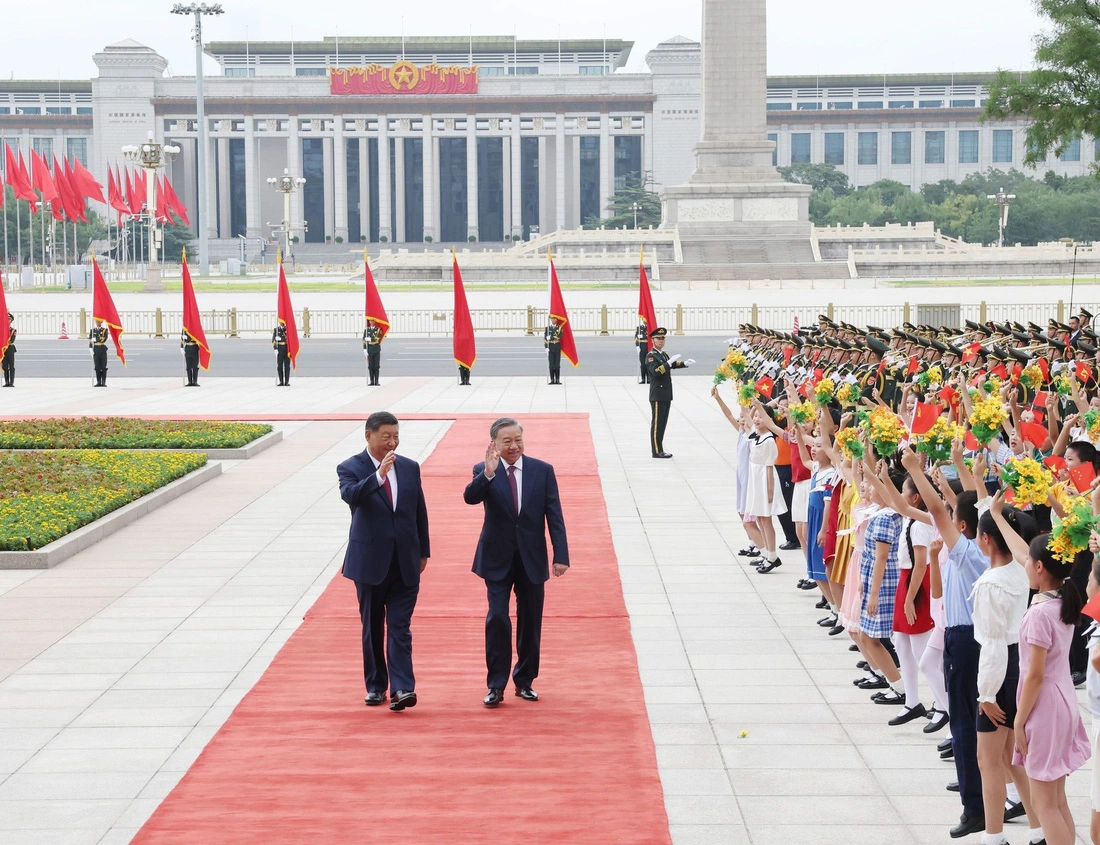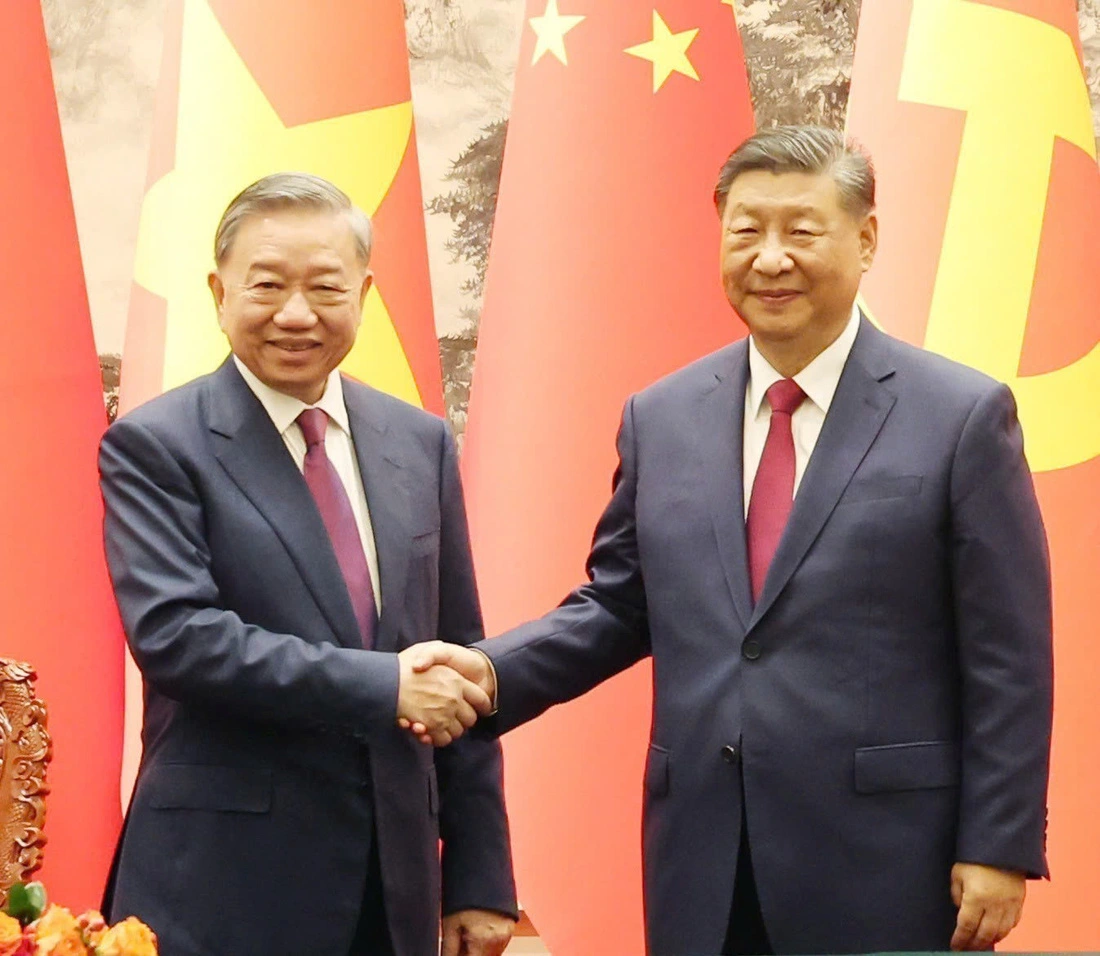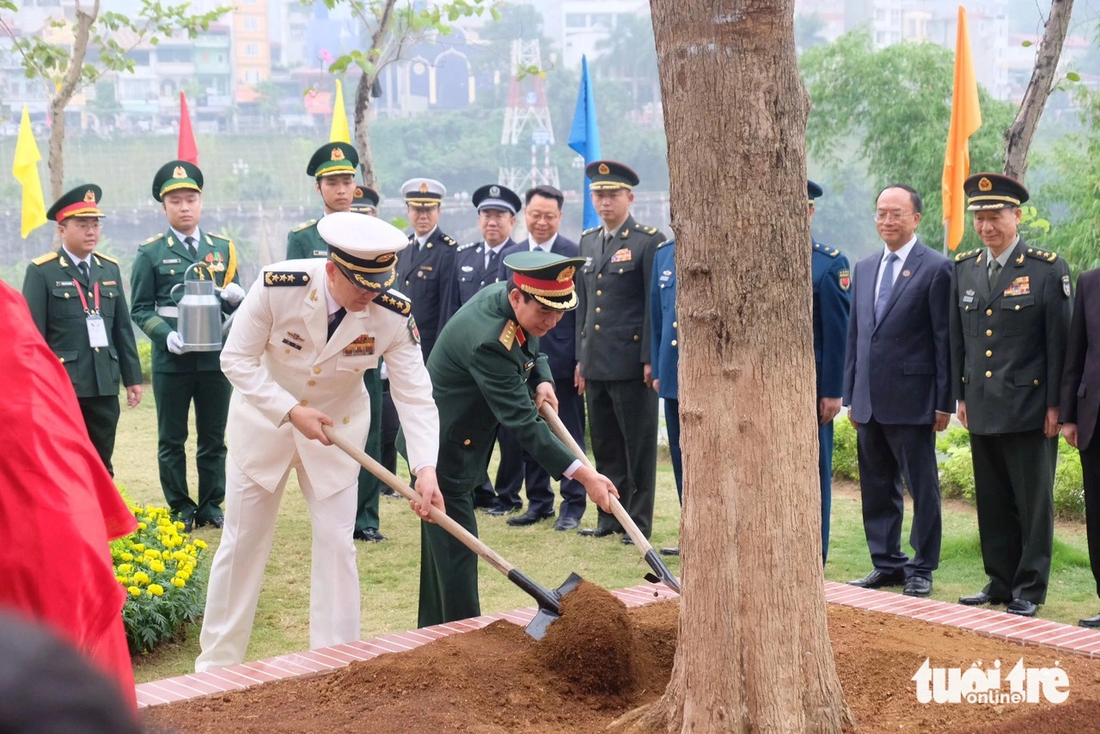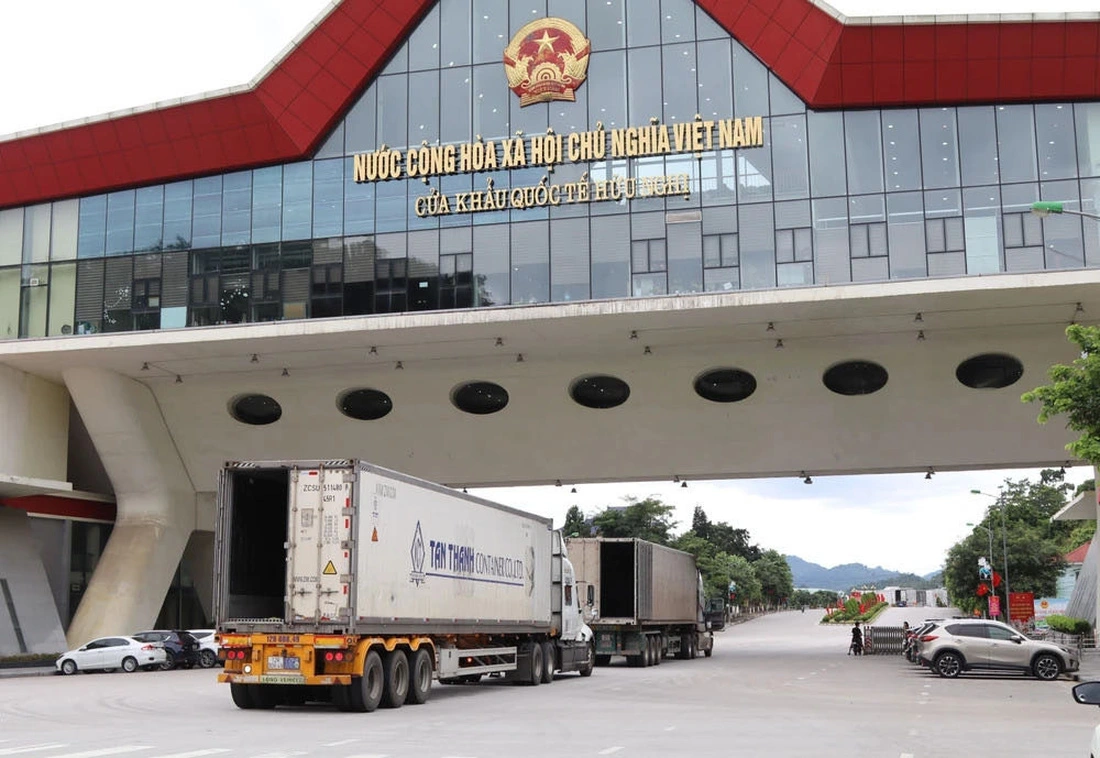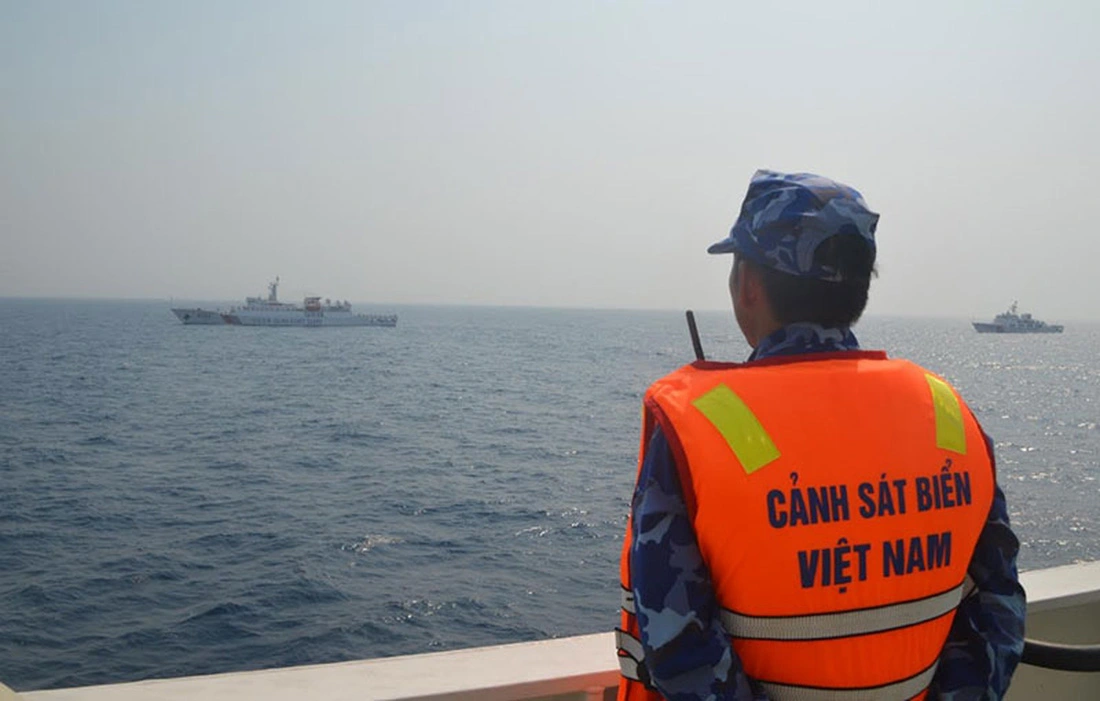Vietnam and China have announced a joint statement on further strengthening their comprehensive strategic cooperative partnership and promoting the building of the Vietnam-China community with a shared future with strategic significance.
The joint statement was launched on Tuesday as a summary of the outcomes of the three-day state visit to China by Vietnamese Party General Secretary and State President To Lam and his spouse at the invitation of Chinese Party General Secretary and President Xi Jinping and his spouse.
During the visit, the Vietnamese leader held talks with his Chinese counterpart Xi, Prime Minister Li Qiang, Chairman of the Standing Committee of the National People’s Congress of China Zhao Leji, and Chairman of the National Committee of the Chinese People’s Political Consultative Conference Wang Huning.
At these meetings, the two sides had in-depth exchanges of opinions and reached important common perceptions on further strengthening the comprehensive strategic cooperative partnership and promoting the building of the Vietnam-China community with a shared future in the new situation, the joint statement said, adding they also discussed international and regional issues of mutual concern.
|
|
| Vietnamese Party General Secretary and State President To Lam (L) shakes hands with his Chinese counterpart Xi Jinping before their talks in Beijing, China, August 19, 2024. Photo: Vietnam News Agency |
Priority to Vietnam - China ties considered strategic choice
The Communist Party of Vietnam and the Communist Party of China are carrying a historic mission, striving for the happiness of the people, for national development, and for peace and progress of mankind, the Vietnam News Agency cited the joint statement.
In the cause of struggling for national independence and liberation, the two Parties, two countries, and people of Vietnam and China supported each other, establishing the Vietnam-China traditional friendship as both comrades and brothers.
Now entering a new era, the two nations will not forget their initial wish of friendship, engrave the common mission, steadfastly pursue the path to socialism, and promote modernization in line with each country's situation, according to the joint statement.
The Chinese side affirmed its support for Vietnam to develop prosperously, bring happiness to its people, and build a strong, independent, and self-reliant economy.
China also advocated Vietnam developing open and friendly external relations and promoting an increasingly important role for peace, stability, development, and prosperity in the region and the world.
In a joint statement, China reaffirmed its commitment to a policy of friendship with Vietnam, highlighting the country as a priority in its neighborhood diplomacy.
Meanwhile, Vietnam underscored that its relationship with China remains a top priority within its foreign policy framework of independence, self-reliance, multilateralism, and diversification.
The statement emphasized that this alignment represents a strategic choice for both nations.
Both sides stressed the importance of fully implementing the common understandings and agreements reached during the bilateral visits of their top leaders.
They were committed to advancing the construction of the Vietnam-China community with a shared future, aiming for more tangible outcomes.
The two nations also agreed that the Vietnam-China Bilateral Cooperation Steering Committee should guide ministries, agencies, and localities in both countries to actively contribute to building this community.
Reaffirming that defense and security cooperation is a cornerstone of Vietnam-China relations, both countries were committed to deepening their collaboration in these areas.
They agreed to enhance joint efforts to combat telecom fraud, cybersecurity threats, economic crimes, human trafficking, and illegal immigration, as well as to track and recover assets of criminals who have fled abroad.
The two nations also concurred on establishing a hotline between their Ministries of Public Security and moving swiftly to ratify a state-level agreement on the transfer of sentenced persons between Vietnam and China.
Both sides vowed to intensify information exchange and share experience in countering interference, separatism, and color revolutions, with the aim of jointly safeguarding political and regime security.
They also pledged to bolster bilateral cooperation in the legal and judicial fields.
|
|
| Vietnamese Minister of National Defense Phan Van Giang (R) and his Chinese counterpart Dong Jun jointly plant a ‘friendship’ tree within the framework of the eighth Vietnam - China Border Defense Friendship Exchange Program in April 2024. Photo: Nguyen Bao / Tuoi Tre |
Promoting strategic development connectivity
According to the joint statement, the two countries’ leaders agreed to promote strategic development connectivity between the two countries, effectively implementing the cooperation plan connecting the ‘Two Corridors, One Belt’ framework with the ‘Belt and Road’ initiative.
They also underscored the need to accelerate the ‘hard connectivity’ between the two countries in terms of railways, expressways, and border gate infrastructure, while upgrading the ‘soft connectivity’ in terms of smart customs.
China agrees to assist Vietnam in planning the Lang Son - Hanoi and Mong Cai - Ha Long - Hai Phong standard gauge railway lines, and in preparing a feasibility study report for the Lao Cai - Hanoi - Hai Phong standard gauge railway line.
The two nations will hasten the pilot construction of smart border gates at the Huu Nghi (Vietnam) - Youyi Guan (China) international border gate, while proceeding with the trial construction of cross-border economic cooperation zones and jointly building safe and stable production and supply chains.
The joint statement encouraged enterprises with strong capabilities, reputations, and advanced technologies in both Vietnam and China to invest in each other’s markets, particularly in sectors such as hi-tech agriculture, infrastructure, clean energy, digital economy, and green development.
Both countries pledged to create a fair and favorable business environment for foreign enterprises.
The two sides also agreed to enhance the role of the Regional Comprehensive Economic Partnership (RCEP) and the ASEAN-China Free Trade Area, leverage e-commerce platforms and trade fairs, strengthen customs cooperation, and boost the export of key products to each other.
China expressed its willingness to facilitate the opening of additional Vietnamese trade promotion offices in China, while Vietnam voiced its support for China’s bid to join the Comprehensive and Progressive Agreement for Trans-Pacific Partnership and welcomed Hong Kong’s steps toward joining the RCEP.
In a further display of goodwill, the two neighboring countries declared 2025 as the ‘Year of Vietnam-China Humanitarian Exchange’ and announced plans to jointly organize a series of events to mark the 75th anniversary of their diplomatic relations.
|
|
| Huu Nghi International Border Gate in Lang Son Province, northern Vietnam, which borders China. Photo: Ha Quan / Tuoi Tre |
Complying with international law
The leaders of Vietnam and China reaffirmed their commitment to enhancing coordination and multilateral cooperation in building the Vietnam-China community with a shared future, a goal they described as having strategic significance.
The joint statement underscored that both nations should adhere to the ‘Five Principles of Peaceful Coexistence’ and fundamental norms of international relations, while advocating for a multipolar world characterized by equality, order, and comprehensive, inclusive, and sustainable economic globalization.
Both countries pledged to promote human rights exchanges and cooperation based on equality and mutual respect, firmly opposing the ‘politicization,’ ‘instrumentalization,’ and double standards often associated with human rights issues. They strongly rejected the use of human rights as a tool to interfere in the internal affairs of other nations.
The two sides also vowed to continue coordinating within multilateral mechanisms, including the United Nations and the Asia-Pacific Economic Cooperation Forum, and to support each other’s candidacies for international organizations.
China was further committed to working with ASEAN countries to advance the initiative of building the ‘Five Common Homes’ of peace, security, prosperity, beauty, and friendship.
It also pledged to accelerate the development of the ASEAN-China Free Trade Area 3.0, boost cooperation within the Mekong-Lancang framework, and strengthen collaboration in the Greater Mekong Sub-region economic cooperation framework.
|
|
| A Vietnamese coast guard officer is seen in a joint patrol between the Vietnam Coast Guard and its Chinese counterpart in late April 2024. Photo: Quan Doi Nhan Dan (People’s Army) newspaper |
Effectively resolving disagreements
Vietnam and China engaged in deep, sincere, and frank discussions on maritime issues, underscoring the importance of better managing and proactively addressing disagreements at sea to maintain peace and stability in the East Vietnam Sea and the broader region.
Both sides were committed to actively seeking fundamental and long-term solutions acceptable to both parties, in accordance with the Vietnam-China agreement on basic principles guiding the settlement of sea-related issues, and in line with international law, including the 1982 United Nations Convention on the Law of the Sea (UNCLOS). They agreed to avoid actions that could complicate the situation or escalate disputes.
The two countries also pledged to continue the effective implementation of the Declaration on the Conduct of Parties (DOC) in the East Vietnam Sea and to work together toward achieving a substantive and effective Code of Conduct (COC) for the waterway, in line with international law, including UNCLOS.
Vietnam and China agreed to enhance coordination to effectively implement legal documents related to their land border and associated agreements. They plan to promote cooperation in areas along the land border and to organize activities commemorating the 25th anniversary of the Vietnam-China Land Border Treaty and the 15th anniversary of the three legal documents on the Vietnam-China land border.
In the joint statement, Vietnam reaffirmed its commitment to the 'One China' policy, acknowledging that there is only one China and that Taiwan is an inseparable part of its territory.
Vietnam recognized the government of the People’s Republic of China as the sole legitimate government representing all of China.
The statement emphasized Vietnam's support for the peaceful development of cross-strait relations and China's efforts toward reunification.
Vietnam firmly opposed any actions aimed at promoting Taiwan's independence in any form and pledged not to establish any state-level relations with Taiwan.
The joint statement concluded with both sides agreeing that the state visit of General Secretary and President To Lam, from Sunday to Tuesday, was a resounding success, marking a significant milestone in the development of the Vietnam-China community with a shared future of strategic importance.
This relationship, they noted, is crucial for promoting peace, stability, and development in the region and beyond.
Lam expressed his gratitude for the warm reception from the Chinese side and extended a respectful invitation to his Chinese counterpart to visit Vietnam again soon. The Chinese leader gladly accepted the invitation.
Like us on Facebook or follow us on X to get the latest news about Vietnam!



